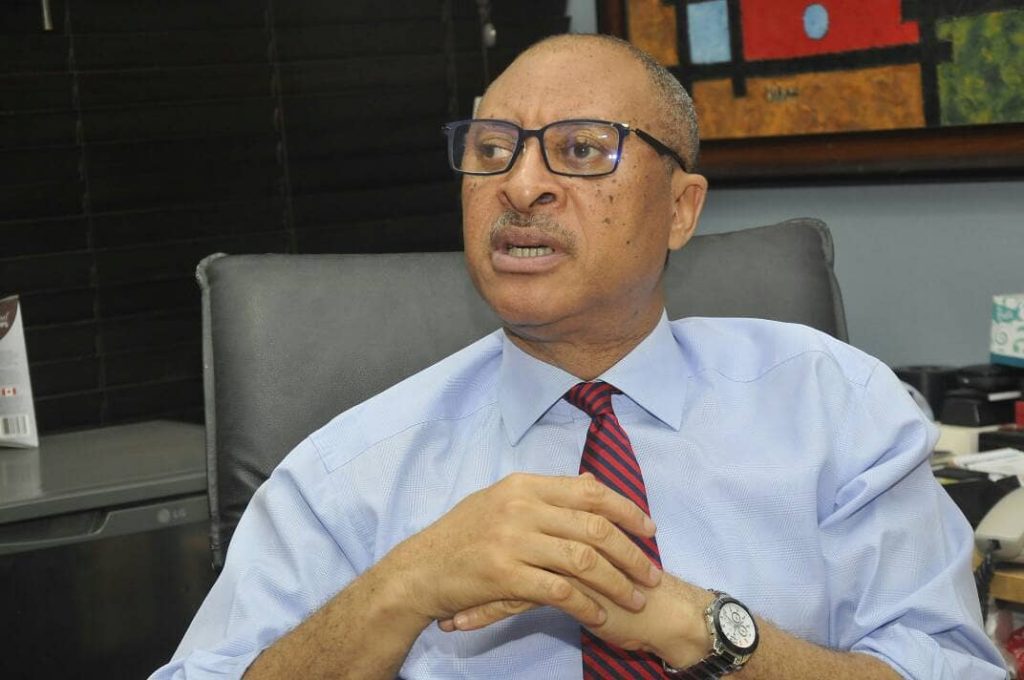
A former Deputy Governor of the Central Bank of Nigeria (CBN), Prof. Kingsley Moghalu; economy economist, Prof. Pat Utomi, erstwhile director-general of the National Electricity Regulation Commission (NERC), Sam Amadi and others, yesterday, took turns to review Nigeria’s education funding template and suggested fresh ideas on how, why and what should be financed in the value chain.
The economics and sociology of tertiary education funding seized the heart of the discussions at the second series of Prime Business Africa’s Socio-economic and Entrepreneurship Development Series (SEEDS) with Moghalu calling for a funding template that is consistent with the overall educational goals of the country.
The former presidential candidate said education deserved priority attention as “it is key to Nigeria’s future” and its currently poor handling was directly related to the insecurity crisis in the northern part of the country.
He declared: “I don’t believe in throwing money problems. Funding of Nigeria’s tertiary education must be consistent with the goals of tertiary education. Hence, it is important to ask: Why do we fund education? How do we fund education? What should we fund?”
Moghalu said funding was necessary as education is key to shaping worldview, which is the foundation of human development. He added that education “is the surest path out of poverty” as it gives people the skills needed to earn a living.
After speaking extensively on the current funding model, Moghalu listed curriculum, manpower, access and infrastructure as major areas that must be funded, adding that education would take 20 per cent of the country’s budget if he has the chance to lead the country.
He regretted that the lecturer to student ratio at the University of Abuja and the University of Lagos were one to 120 and one to over 140 respectively whereas that of the National University of Singapore was one to 10.
In funding university curriculum, Moghalu charged Nigeria to aspire to catch up with Israel and the United Arab Emirates in the next 20 years.
About 70 per cent of the country’s curriculum, he advised, should focus on science, technology, engineering and mathematics (STEM), entrepreneurship and other skills required to industrialise the country.
The keynote speaker of the event moderated by a former editor of The Guardian on Sunday, Jahman Anikulapo, said the government must invest in its commitment to the university lecturers as a matter of necessity.
Utomi, in his intervention, said if “there are two sectors the government must fund, there are education and health”. He urged the government to see education as an investment rather than a social service.
Otherwise, he noted, political office holders would not develop the right frame of mind needed to make the right choice to make the education sector efficient and productive.
According to Amadi, those who must get a university education (as it is not necessary everybody attends) should be made to pay fees that are commensurate with the funding requirement of the system.
He insisted that universities “are not democratic enterprises” and that Nigeria must stop seeing them as such.
Others who spoke at the event organised by Newstide Publications included Prof. Abiodun Adeniji of Base University, Abuja; Dr. Abdullahi Bashir of Modibbo Adama University, Yola; Bongo Adi, a board member of Newstide Publication and member of the Lagos Business School economics faculty and Prof. Charles Okeke, Dean at The College of Southern Nevada, Las Vegas, United States.






